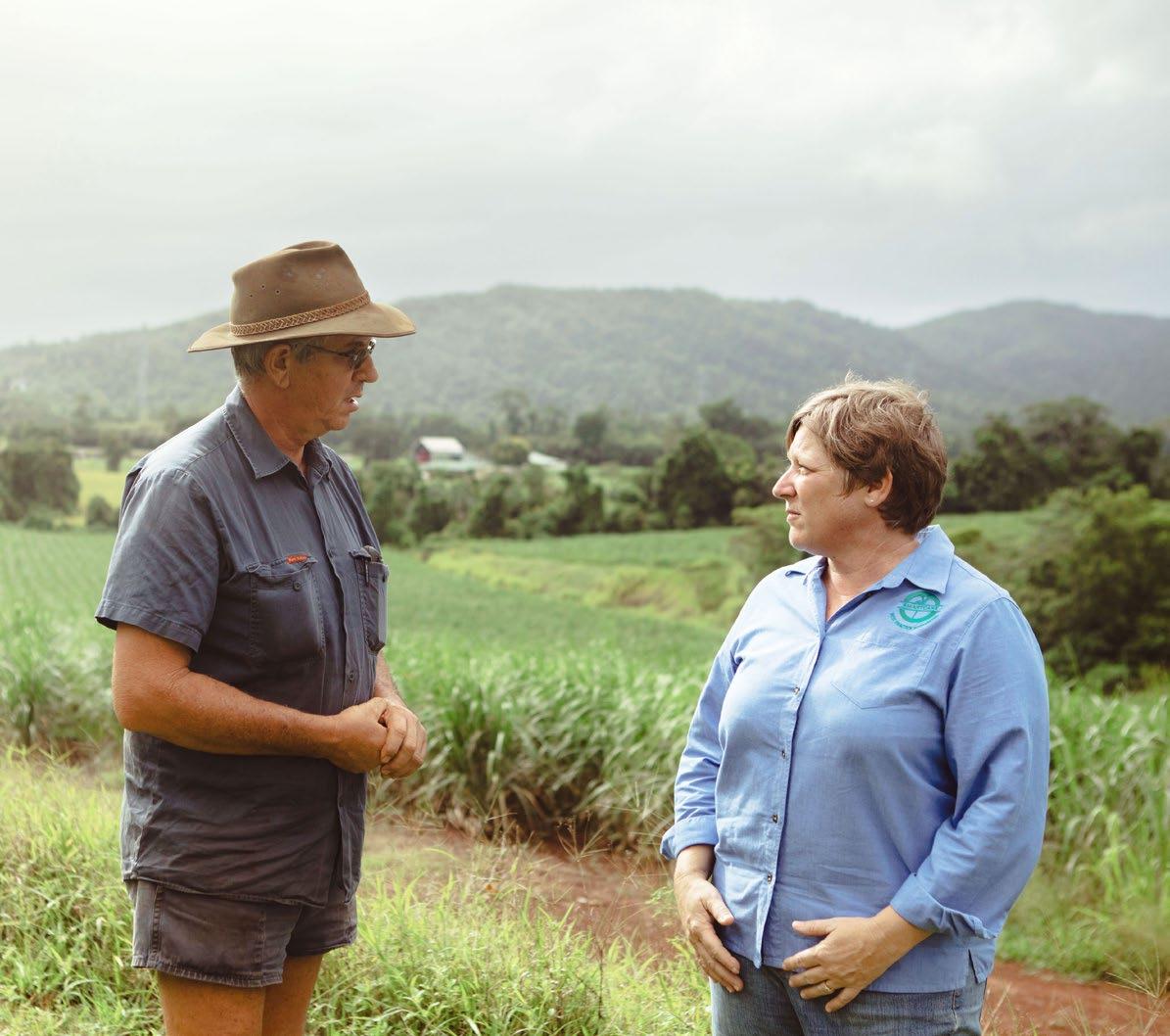
4 minute read
SMARTCANE BMP MODULES DUE FOR THEIR REGULAR CHECK-UP
Since the Smartcane BMP modules were first developed in 2014, they have been reviewed every few years to ensure they remain consistent with the best available research data and practical knowledge.
This has always relied heavily on the results of SRA/BSES research, the experience of extension agronomists, and any relevant research results from universities, CSIRO, and government departments.
The modules that focus on sugarcane agronomy are now due for another review, to be completed by the end of this year. In addition to ensuring the modules are up to date with the best information for productivity and profit, the review will consider the practical and affordable measures growers can take to reduce losses of nitrogen, chemicals, and sediment into waterways.
We don’t expect any major changes to the modules, but some fine-tuning is possible. The principles of good management rarely change but options for achieving these do evolve with research and with the practical experience and innovations of growers and their advisors.
Accredited BMP growers have already proved they are meeting the principles of good crop management, so should be assured the intent of these reviews is not about changing the goalposts. Where previous reviews have made a refinement to practice options, any implications for growers have been managed carefully, gradually and with plenty of support.
PRINCIPLES UNDERPIN PRACTICE OPTIONS IN SMARTCANE BMP
The distinction between principle and practice is important in farming as it is in most aspects of life. A principle is an understanding about what we need to do to achieve improvement. A practice is what we actually do as a result of the guiding principle.
Smartcane BMP reflects this key distinction, and this is best illustrated by an example. One key principle for soil health, and for breaking soilborne disease cycles, is the fallowing of land between crop cycles, with adequate ground cover to reduce the erosion risk. This principle also has other benefits including the opportunity to correct nutritional disorders by addition of soil ameliorants, to rectify land for improved drainage or irrigation efficiency, and to suppress weed populations.
However, the way that this principle is best achieved can vary from farm to farm. For example, the now common practice in most districts of trash retention can be extended through the fallow period while any living cane is sprayed, and weeds are also controlled before they seed. This is a set of ‘good’ practices that can be employed on any farm and is referred to as ‘industry standard’ in Smartcane BMP. In areas where trash retention can create issues, such as the Burdekin, other ways of achieving the same outcomes are recognised.
The principle can also be achieved by growing a legume or other non-grass crop during the fallow and having the crop residue retained on the soil surface. This can improve available soil nitrogen and soil organic matter. This set of “better” practices will suit many farms but is not equally suited or advantageous to every farm or situation, and is referred to as ‘above industry standard’ in Smartcane BMP.
ACCREDITATION REQUIRES ‘GOOD’ PRACTICES.
To become BMP accredited, a farm must have ‘good’ practices in place for each aspect of crop management. We find that most growers are already doing this but may not have a full set of records to show this is the case. Our
facilitators in each district work with growers to help acquire the additional evidence needed.
While I have not met anyone yet who likes record-keeping, our facilitators know how to make it relatively painless and routine.
Many growers also have ‘better’ practices in place for several aspects of crop and farm management, such as fallow use, managing compaction or irrigation scheduling. This is
noted and recognised in the Smartcane BMP system. Where a grower is interested in investigating a new change in practice, our facilitators will help growers find the information or expertise they are seeking. In recent months, for example, our team has assisted growers with aspects of irrigation management, identifying and correcting nutrient deficiencies, training in chemical use, and fallow crop options. They can also help growers access relevant support from industry or government projects that can help meet their objectives for the farm.
ACKNOWLEDGEMENT:
The Smartcane BMP program is delivered by CANEGROWERS and co-funded through the Queensland Government’s Queensland Reef Water Quality Program.










